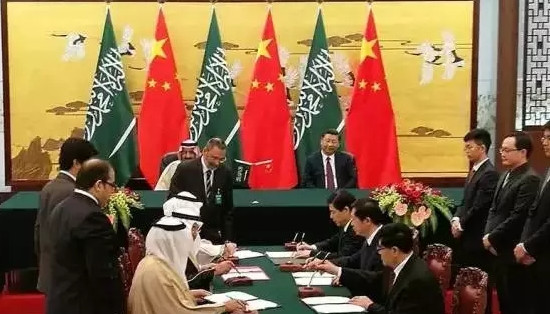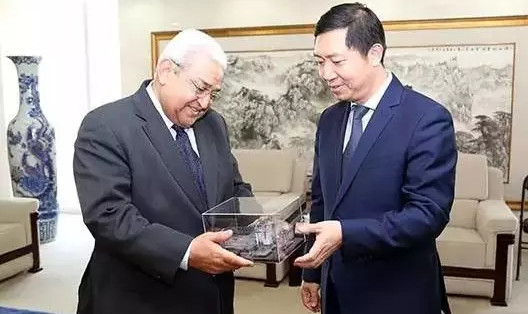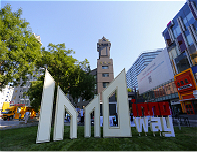Nuclear reactor developed by Tsinghua University to be used in Saudi Arabia
2017-03-23
A deal that will see China provide Saudi Arabia with a cutting-edge nuclear reactor developed by Tsinghua University took another step toward completion on March 16 with the signing of an agreement between China Nuclear Engineering Corporation and King Abdullah City for Atomic & Renewable Energy.
The agreement, confirmed during a meeting between Chinese President Xi Jinping and Saudi Arabia's King Salman in Beijing, settles a number of technical details regarding investment, construction, intellectual property cooperation and industrial chain localization for the project.

China Nuclear Engineering Corporation and King Abdullah City for Atomic & Renewable Energy signs an agreement for the high-temperature gas-cooled reactor project on March 16.
The signing of the contract further cements the deal reached by China and Saudi Arabia in January 2016, when the two countries signed a memorandum of understanding regarding the construction of a Chinese-developed high-temperature gas-cooled reactor (HTR) in the Middle Eastern state.

Gu Jun (right), president of China Nuclear Engineering Corporation sends a high-temperature gas-cooled reactor model as a gift to Hashim A. Yamani, president of King Abdullah City for Atomic & Renewable Energy.
The HTR, developed by the Institute of Nuclear and New Energy Technology at Tsinghua University, is one of the most advanced Generation IV nuclear reactors in the world. It runs at very high temperatures and is safer than other nuclear reactor designs in that it is immune to meltdowns and emits very little radiation, while its flexible modular design makes it adaptive to various power grids.
The reactor will help Saudi Arabia increase and diversify its energy supply, as well as satisfy its demand for sea water desalination and develop its petrochemical industry.
Securing the order with Saudi Arabia is also a major victory for China, which sees the Arab state as an important link in its Belt and Road Initiative to connect Eurasia through investing in infrastructure and deepening trade and cultural links.
A 200-megawatt HTR developed by the university is currently under construction in Rongcheng in East China's Shandong province, the first reactor of its kind ever to be built at commercial scale in the world. The reactor's components are currently being installed and it is scheduled to become operational in 2018.

 Facebook
Facebook WeiXin
WeiXin CONTACT US
CONTACT US










 Tsinghua Holdings works hard for better ecological environment
Tsinghua Holdings works hard for better ecological environment